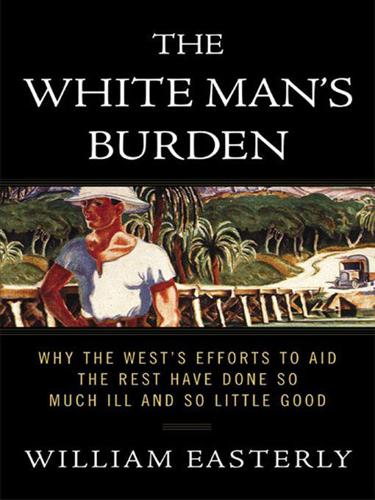
The White Man's Burden: Why the West's Efforts to Aid the Rest Have Done So Much Ill and So Little Good
by
William Easterly
Published 1 Mar 2006
A Searcher believes only insiders have enough knowledge to find solutions, and that most solutions must be homegrown. Columbia University professor and director of the United Nations Millennium Project Jeffrey Sachs is an eloquent and compassionate man. I am always moved when I listen to him speak. Unfortunately, his intellectual solutions are less convincing. Professor Sachs offers a Big Plan to end world poverty, with solutions ranging from nitrogen-fixing leguminous trees to replenish soil fertility, to antiretroviral therapy for AIDS, to specially programmed cell phones to provide real-time data to health planners, to rainwater harvesting, to battery-charging stations, to twelve-cent medicines for children with malaria—for a total of 449 interventions.
…
A cow can nicely feed a family with a steady supply of milk, butter, cheese, and (unfortunately for the cow) beef. Of course, you could win the Kentucky Derby if you had a championship-caliber horse, but this book will review the decades of experience that show aid agencies to be cows, not racehorses. Likewise, we will see in this book that aid agencies cannot end world poverty, but they can do many useful things to meet the desperate needs of the poor and give them new opportunities. For example, instead of trying to “develop” Ethiopia, aid agencies could devise a program to give cash subsidies to parents to keep their children in school. Such a program has worked in other places, so it could take children like Amaretch out of the brutal firewood brigade and give her hope for the future.
…
Social engineering showed up in Africa and Latin America in the eighties and nineties as IMF/World Bank–sponsored comprehensive reforms called “structural adjustment.” Military intervention to overthrow evil dictators and remake other societies into some reflection of Western democratic capitalism is the extreme of contemporary utopian social engineering. The plan to end world poverty shows all the pretensions of utopian social engineering. Democratic politics is about searching for piecemeal solutions: a local group engages in political action to campaign for a missing public service, such as trash collection; and a politician recognizes an opportunity for political gain from meeting these needs and winning over this particular group.
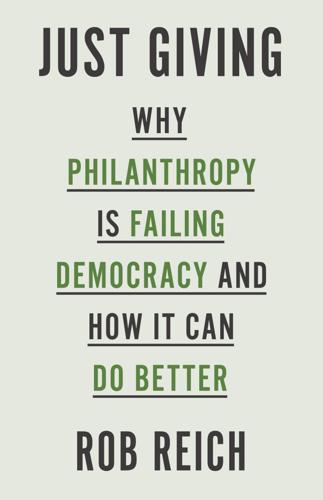
Just Giving: Why Philanthropy Is Failing Democracy and How It Can Do Better
by
Rob Reich
Published 20 Nov 2018
Singer introduced his basic argument in 1972 in his “Famine, Affluence, and Morality,” Philosophy and Public Affairs 1 (1972): 229–243, and to the extent philosophers have written about philanthropy or charity, Singer’s argument has dominated discussion. In recent years Singer has made efforts to popularize his view, e.g., The Life You Can Save: How to Do Your Part to End World Poverty (New York: Random House, 2010); The Most Good You Can Do: How Effective Altruism Is Changing Ideas about Living Ethically (New Haven, CT: Yale University Press, 2015). For another philosopher’s defense of effective altruism, see William MacAskill, Doing Good Better (New York: Gotham Books, 2015). 13.
…
Comparative Studies of South Asia, Africa and the Middle East 31 (2011): 557–568. ———. “Soup and Sadaqa: Charity in Islamic Societies.” Historical Research 79 (2006): 306–324. Singer, Peter. “Famine, Affluence, and Morality.” Philosophy and Public Affairs 1 (1972): 229–243. ———. The Life You Can Save: How to Do Your Part to End World Poverty. New York: Random House, 2010. ———. The Most Good You Can Do: How Effective Altruism Is Changing Ideas about Living Ethically. New Haven, CT: Yale University Press, 2015. Skocpol, Theda. Diminished Democracy: From Membership to Management in American Civic Life. Norman: University of Oklahoma Press, 2003.
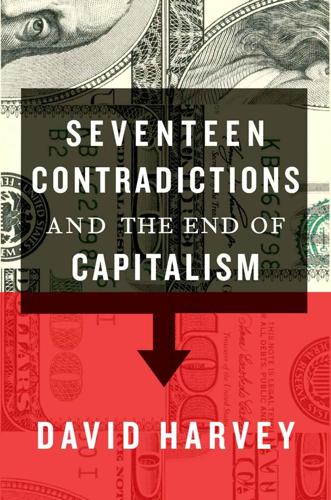
Seventeen Contradictions and the End of Capitalism
by
David Harvey
Published 3 Apr 2014
Everywhere, the rich are getting richer by the minute. The top 100 billionaires in the world (from China, Russia, India, Mexico and Indonesia as well as from the traditional centres of wealth in North America and Europe) added $240 billion to their coffers in 2012 alone (enough, calculates Oxfam, to end world poverty overnight). By contrast, the well-being of the masses at best stagnates or more likely undergoes an accelerating if not catastrophic (as in Greece and Spain) degradation. The one big institutional difference this time around seems to be the role of the central banks, with the Federal Reserve of the United States playing a leading if not domineering role on the world stage.
…
Even in many of the poorest countries, inequality has grown rapidly. Globally the incomes of the top 1% have increased 60% in twenty years. The growth in income for the top 0.01% has been even greater. The crisis of 2007–9 onwards made matters worse: ‘The top 100 billionaires added $240 billion to their wealth in 2012 – enough to end world poverty four times over.’2 Billionaires have erupted all over the place, with large numbers now recorded in Russia, India, China, Brazil and Mexico, as well as in the more traditionally wealthy countries in North America, Europe and Japan. One of the more significant shifts is that the ambitious no longer have to migrate to the affluent countries to become billionaires – they can simply stay at home in India (where the number of billionaires has more than doubled over the last few years), Indonesia or wherever.
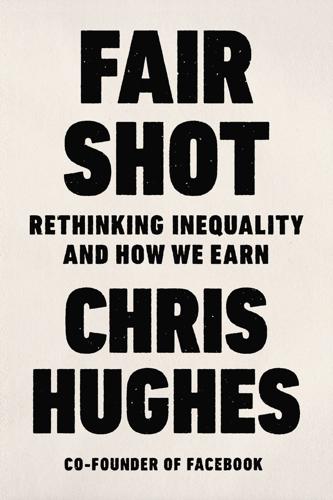
Fair Shot: Rethinking Inequality and How We Earn
by
Chris Hughes
Published 20 Feb 2018
The Atlantic, July 14, 2016. https://www.theatlantic.com/business/archive/2016/07/social-mobility-america/491240/. Shultz, David. “A Bit of Cash Can Keep Someone Off the Streets for 2 Years or More.” Science, August 11, 2016. http://www.sciencemag.org/news/2016/08/bit-cash-can-keep-someone-streets-2-years-or-more. Singer, Peter. The Life You Can Save: Acting Now to End World Poverty. Random House (Kindle Edition), 2009. Soergel, Andrew. “Mnuchin ‘Not At All’ Worried About Automation Displacing Jobs.” U.S. News, March 24, 2017. https://www.usnews.com/news/articles/2017-03-24/steven-mnuchin-not-at-all-worried-about-automation-displacing-jobs. Sommeiller, Estelle, Mark Price, and Ellis Wazeter.
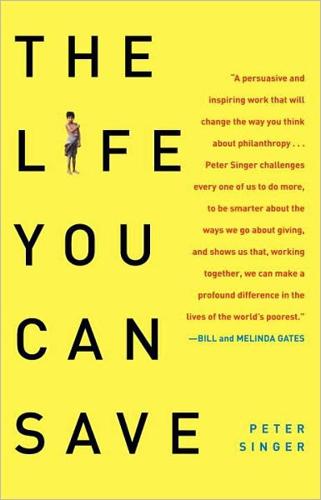
Life You Can Save: Acting Now to End World Poverty
by
Peter Singer
Published 3 Mar 2009
His recreations, apart from reading and writing, include hiking and surfing. Copyright © 2009 by Peter Singer All rights reserved. RANDOM HOUSE and colophon are registered trademarks of Random House, Inc. Library of Congress Cataloging-in-Publication Data Singer, Peter The life you can save : acting now to end world poverty / Peter Singer p. cm. Includes index. eISBN: 978-1-58836-779-2 1. Charity. 2. Humanitarianism. 3. Economic assistance. 4. Poverty. I. Title. HV48.S56 2009 362.5—dc22 2008036279 www.atrandom.com v3.0_r1
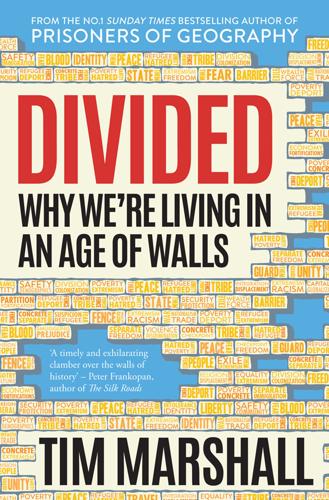
Divided: Why We're Living in an Age of Walls
by
Tim Marshall
Published 8 Mar 2018
The more efficient allocation of labor would result in global increases in productivity, leading the world economy to nearly double in size. This increased economic activity would, moreover, disproportionately benefit the world’s poorest people. Smith argues that by opening borders we could end world poverty, and therefore that it is, in a way, a moral duty for those of us in the West to do so, especially in terms of righting historical wrongs. There is even a view that the practice of citizenship within a state is as violent and discriminatory as the slave trade, because it places citizens’ rights over human ones and thus legitimizes the idea that some people are more human than others.
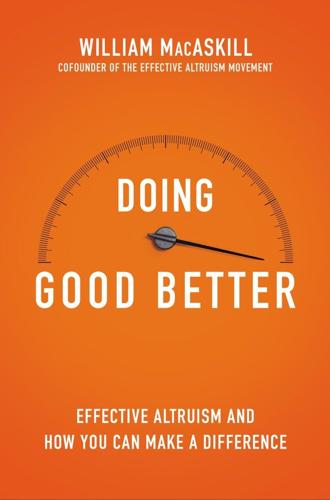
Doing Good Better: How Effective Altruism Can Help You Make a Difference
by
William MacAskill
Published 27 Jul 2015
I helped to develop the idea of effective altruism: Toby and I were both heavily influenced by Peter Singer’s arguments for the moral importance of giving to fight poverty, made in “Famine, Affluence, and Morality,” Philosophy and Public Affairs 1, no. 1 (Spring 1972): 229–43 and The Life You Can Save: Acting Now to End World Poverty (New York: Random House, 2009). On the basis of his arguments, we both made commitments to donate everything we earn above £20,000 per year—about £1 million pounds each over our careers, or 50 percent of our lifetime earnings. Because we were putting so much of our own money on the line, the importance of spending that money as effectively as possible seemed imperative.
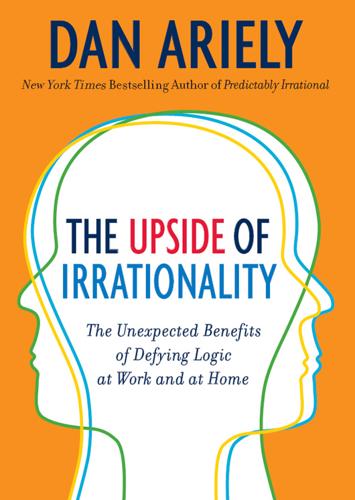
The Upside of Irrationality: The Unexpected Benefits of Defying Logic at Work and at Home
by
Dan Ariely
Published 31 May 2010
Deborah Small, George Loewenstein, and Paul Slovic, “Sympathy and Callousness: The Impact of Deliberative Thought on Donations to Identifiable and Statistical Victims,” Organizational Behavior and Human Decision Processes 102, no. 2 (2007): 143–153. Peter Singer, “Famine, Affluence, and Morality,” Philosophy and Public Affairs 1, no. 1 (1972): 229–243. Peter Singer, The Life You Can Save: Acting Now to End World Poverty (New York: Random House, 2009). Paul Slovic, “Can International Law Stop Genocide When Our Moral Institutions Fail Us?” Decision Research (2010; forthcoming). Paul Slovic, “ ‘If I Look at the Mass I Will Never Act’: Psychic Numbing and Genocide,” Judgment and Decision Making 2, no. 2 (2007): 79–95.
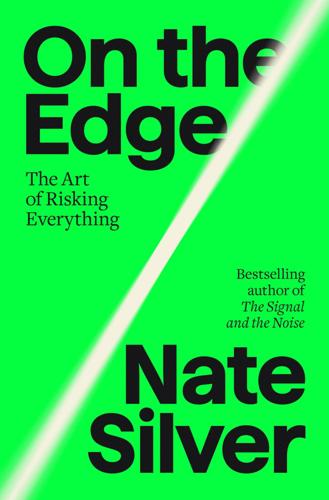
On the Edge: The Art of Risking Everything
by
Nate Silver
Published 12 Aug 2024
GO TO NOTE REFERENCE IN TEXT a drowning child: dphilo, “Peter Singer’s Drowning Child,” Daily Philosophy, November 24, 2020, daily-philosophy.com/peter-singers-drowning-child. GO TO NOTE REFERENCE IN TEXT his later writings: Peter Singer, The Life You Can Save: Acting Now to End World Poverty (New York: Random House, 2009). GO TO NOTE REFERENCE IN TEXT the Harvard endowment: “Financial Report Fiscal Year 2022,” Harvard University, October 2022, finance.harvard.edu/files/fad/files/fy22_harvard_financial_report.pdf. GO TO NOTE REFERENCE IN TEXT more than $50 billion: Krishi Kishore and Rohan Rajeev, “Harvard Endowment Value Falls for Second Consecutive Year, Records Modest 2.9% Return During FY2023,” The Harvard Crimson, October 20, 2023, thecrimson.com/article/2023/10/20/endowment-returns-fy23.
…
GO TO NOTE REFERENCE IN TEXT principle of impartiality: Troy Jollimore, “Impartiality,” in The Stanford Encyclopedia of Philosophy, ed. Edward N. Zalta and Uri Nodelman (Stanford, CA: Metaphysics Research Lab, Stanford University, 2021), plato.stanford.edu/archives/win2023/entries/impartiality. GO TO NOTE REFERENCE IN TEXT our own children: Peter Singer, The Life You Can Save: Acting Now to End World Poverty (New York: Random House, 2009), 151. GO TO NOTE REFERENCE IN TEXT $3,000 to 5,000: Based on a GiveWell estimate of the impact of donations to anti-malaria nets in Guinea; “How Much Does It Cost To Save a Life?,” GiveWell, September 2022, givewell.org/how-much-does-it-cost-to-save-a-life.
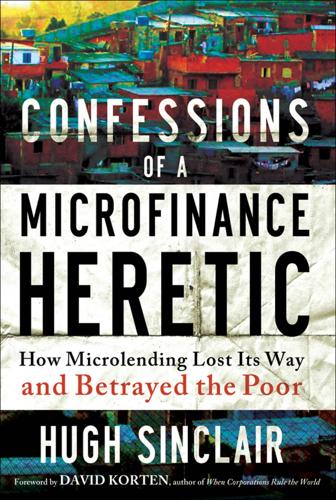
Confessions of a Microfinance Heretic
by
Hugh Sinclair
Published 4 Oct 2012
It is essential reading for anyone involved in microcredit and for all who are committed to ending global poverty and injustice. For some twenty years we have heard the story that microcredit is the cure for global poverty: An amazing visionary economist in Bangladesh named Mohammed Yunus founded the Grameen Bank and demonstrated a simple, effective way to end world poverty. Small, low-cost loans to the poor unleash their entrepreneurial potential and allow them to start profitable businesses that bring prosperity to themselves, their children, and their communities. It is a win–win solution that doesn’t require charity, redistribution, rethinking economic policy, or restructuring existing economic institutions and relationships.
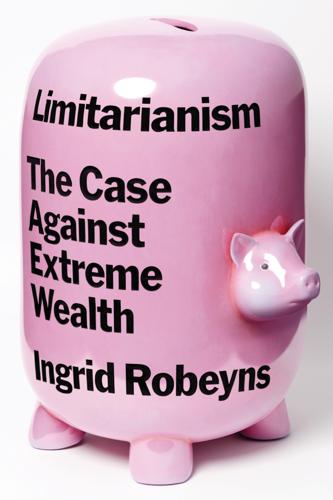
Limitarianism: The Case Against Extreme Wealth
by
Ingrid Robeyns
Published 16 Jan 2024
Ingrid Robeyns, book review of Just Giving by Rob Reich, Perspectives on Politics 17:4 (2019), pp. 1175–6. 18. Chouinard, Let My People Go Surfing, pp. 151–5. 19. goodancestormovement.com/. 20. Peter Singer, “Famine, Affluence, and Morality,” Philosophy & Public Affairs 1:3 (1972), pp. 229–43, and Peter Singer, The Life You Can Save: How to Do Your Part to End World Poverty (New York: Random House, 2009). 21. On the importance of a person’s own project, see Bernard Williams, “A Critique of Utilitarianism,” in Utilitarianism: For and Against, with J. J. C. Smart (Cambridge: Cambridge University Press, 1973). On the claim that utilitarianism is overdemanding, see Garrett Cullety, The Moral Demands of Affluence (Oxford: Clarendon Press, 2004), and Jørn Sønderholm, “World Poverty, Positive Duties, and the Overdemandingness Objection,” Philosophy, Politics and Economics 12:3 (2013), pp. 308–27. 22.
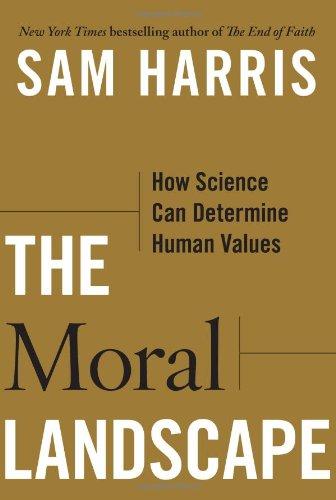
The Moral Landscape: How Science Can Determine Human Values
by
Sam Harris
Published 5 Oct 2010
Simons, D. J., Chabris, C. F., Schnur, T., & Levin, D. T. (2002). Evidence for preserved representations in change blindness. Conscious Cogn, 11 (1), 78–97. Simonton, D. K. (1994). Greatness: Who makes history and why. New York: Guilford. Singer, P. (2009). The life you can save: Acting now to end world poverty. New York: Random House. Singer, T., Seymour, B., O’Doherty, J., Kaube, H., Dolan, R. J., & Frith, C. D. (2004). Empathy for pain involves the affective but not sensory components of pain. Science, 303 (5661), 1157–1162. Singer, W. (1999). Striving for coherence. Nature, 397 (4 February), 391–393.
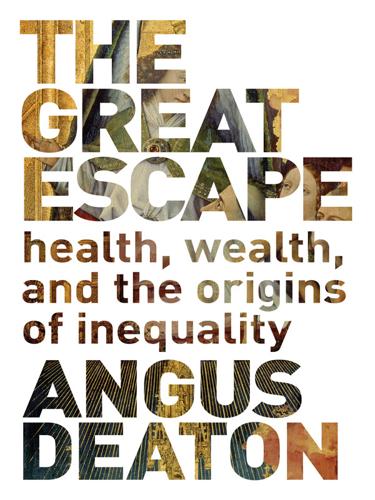
The Great Escape: Health, Wealth, and the Origins of Inequality
by
Angus Deaton
Published 15 Mar 2013
David Hume, 1912 [1777], An enquiry concerning the principles of morals, Project Gutenberg edition, part I (originally published in 1751). 7. Peter Singer, 1972, “Famine, affluence, and mortality,” Philosophy and Public Affairs 1(1): 229–43; quote on p. 242. 8. Peter Singer, 2009, The life you can save: Acting now to end world poverty, Random House. 9. The data on aid in this chapter, unless otherwise noted explicitly, come from Development Assistance Committee, OECD, http://www.oecd.org/dac/stats/, or from World Bank, World Development Indicators, http://databank.worldbank.org/data/home.aspx. 10. The term comes from Jonathan Temple, 2010, “Aid and conditionality,” Handbook of development economics, Elsevier, Chapter 67, p. 4420. 11.
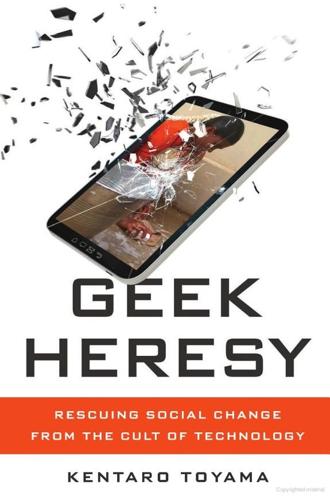
Geek Heresy: Rescuing Social Change From the Cult of Technology
by
Kentaro Toyama
Published 25 May 2015
Predicting adolescent cognitive and self-regulatory competencies from preschool delay of gratification: Identifying diagnostic conditions. Developmental Psychology 26(6):978–986, http://psycnet.apa.org/psycinfo/1991-06927-001. Sinclair, Upton. (1934 [1994]). I, Candidate for Governor: And How I Got Licked. University of California Press. Singer, Peter. (2009). The Life You Can Save: Acting Now to End World Poverty. Picador. ———. (2011). The Expanding Circle: Ethics, Evolution, and Moral Progress. Princeton University Press. 60 Minutes. (2011). Extra: Revolution 2.0. CBS News, Feb. 14, 2011, www.cbsnews.com/video/watch/?id=7349173n. Small, Mario Luis, David J. Harding, and Michèle Lamont. (2010). Reconsidering culture and poverty.
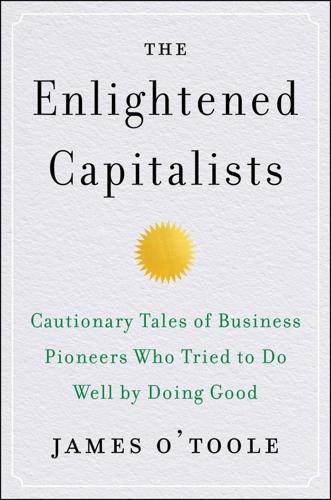
The Enlightened Capitalists
by
James O'Toole
Published 29 Dec 2018
Yet during the century separating their efforts—an era when more wealth was created than at any other time in history—few other business leaders followed their examples, a paradox that puzzled such observers as George Bernard Shaw, the great Irish playwright and social critic. Shaw was a bit of a contrarian on the subject of enlightened capitalists. In his controversial 1905 play Major Barbara, Shaw’s protagonist is a greedy munitions manufacturer who also happens to be a model employer with a mission to end world poverty. We recognize this character, Andrew Undershaft, as possibly a composite distant cousin of many of the business leaders profiled in these pages, most particularly Lever. Although Shaw’s intent in the play was not to offer a critique of enlightened business leadership, the issues he raised illuminate the complexity and paradoxes involved in objectively evaluating the practices of those who use profit-making enterprises to achieve social good.
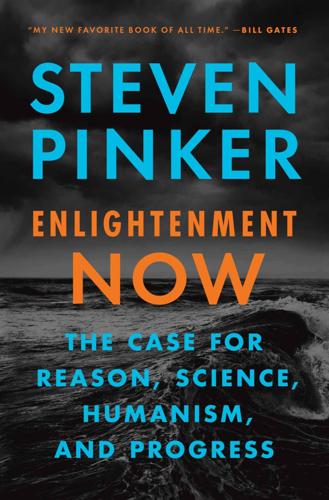
Enlightenment Now: The Case for Reason, Science, Humanism, and Progress
by
Steven Pinker
Published 13 Feb 2018
The signal and the noise: Why so many predictions fail—but some don’t. New York: Penguin. Simon, J. 1981. The ultimate resource. Princeton, NJ: Princeton University Press. Singer, P. 1981/2010. The expanding circle: Ethics and sociobiology. Princeton, NJ: Princeton University Press. Singer, P. 2010. The life you can save: How to do your part to end world poverty. New York: Random House. Singh, J. P., Grann, M., & Fazel, S. 2011. A comparative study of violence risk assessment tools: A systematic review and metaregression analysis of 68 studies involving 25,980 participants. Clinical Psychology Review, 31, 499–513. Slingerland, E. 2008. What science offers the humanities: Integrating body and culture.
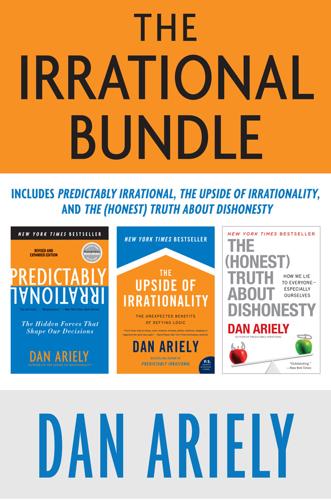
The Irrational Bundle
by
Dan Ariely
Published 3 Apr 2013
Deborah Small, George Loewenstein, and Paul Slovic, “Sympathy and Callousness: The Impact of Deliberative Thought on Donations to Identifiable and Statistical Victims,” Organizational Behavior and Human Decision Processes 102, no. 2 (2007): 143–153. Peter Singer, “Famine, Affluence, and Morality,” Philosophy and Public Affairs 1, no. 1 (1972): 229–243. Peter Singer, The Life You Can Save: Acting Now to End World Poverty (New York: Random House, 2009). Paul Slovic, “Can International Law Stop Genocide When Our Moral Institutions Fail Us?” Decision Research (2010; forthcoming). Paul Slovic, “ ‘If I Look at the Mass I Will Never Act’: Psychic Numbing and Genocide,” Judgment and Decision Making 2, no. 2 (2007): 79–95.